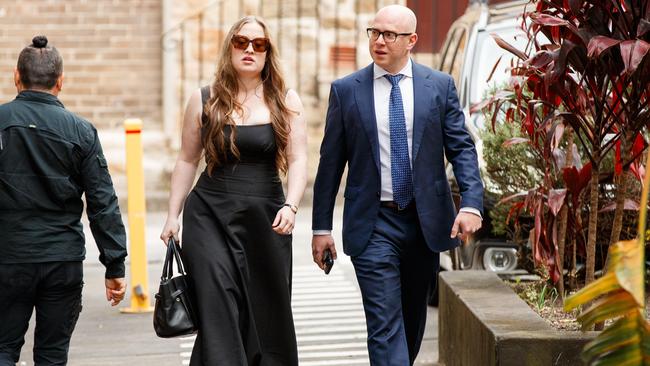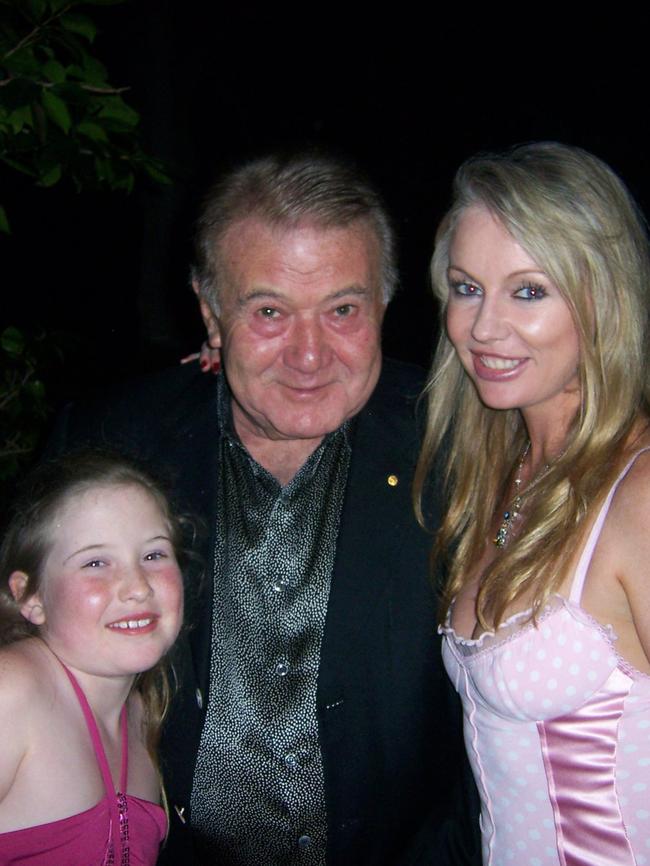Paula Hitchcock secures win ‘in part’ against billionaire half-siblings as she vies for slice of Pratt family fortune
The NSW Supreme Court has paved the way for Paula Hitchcock to pursue a slice of the family fortune in her legal battle with her half-siblings.

The NSW Supreme Court has paved the way for Richard Pratt’s love child, Paula Hitchcock, to argue she is legally entitled to a slice of the family fortune because she is a child not only of the late billionaire but his wife Jeanne Pratt.
The 27-year-old secured a partial court win after she applied for leave to file an updated case against her half-siblings Anthony Pratt, Heloise Waislitz and Fiona Geminder.
It comes after The Australian revealed Ms Hitchcock says she was invited to regularly attend the Pratt family’s weekly Shabbat dinner at the invitation of her biological father, that she was offered a bedroom in their Melbourne home and was invited on family holidays in her legal bid to prove that she has been considered part of the family.
Supreme Court judge Michael Meek handed down his decision on Ms Hitchcock’s application on Wednesday, when he granted Ms Hitchcock permission to plead her amended statement of claim “in part”.

Ms Hitchcock is the biological daughter of the late Mr Pratt, one of Australia’s richest men and founded manufacturing giant Visy, who had an affair with horse trainer Shari-lea Hitchcock. Their daughter was born in 1997.
Ms Hitchcock is trying to prove she is entitled to a slice of the Pratt Family Holdings Trust, and since 2022, has attempted to file a number of versions of her case that contains claims which need to be tested in court.
Rejecting the Pratt siblings’s arguments, Justice Meek has allowed Ms Hitchcock to replead particular parts of her case including that Mrs Pratt “acknowledged” her as part of the family that could bring her into the class of “general” trust beneficiary and “specified” trust beneficiary by a third avenue.
“By her claim … the Plaintiff (Ms Hitchcock) seeks to demonstrate her status as a general beneficiary by a third avenue: as a specified Beneficiary, on the basis that she is a child of Mr Pratt and Mrs Pratt, because she is an ‘illegitimate child’ of Mr Pratt who (a) was acknowledged by Mr Pratt as a member of his family,” Justice Meek said.
“ (and/or Ms Hitchcock) was acknowledged by Mrs Pratt as a member of her family, in circumstances where she was a ‘parent’ of the Plaintiff,” he said.
After a number of paragraphs which contemplated the definition of parent and child, Justice Meek revealed he would allow Ms Hitchcock to argue her case partly on the claim that she has been acknowledged as a child of Mr and Mrs Pratt.

“What seems to be relatively clear is that the definition of ‘child’ … is cast in broad terms that may include a child who is not the biological child of both Mr Pratt and Mrs Pratt,” he said.
“For the purposes of the amendment application, it is not evident to me that the word ‘parent’ … can only mean biological parent.
“I do not consider that the claims made … are so obviously untenable that they would be liable to be struck out if they appeared in the original pleading.”
Lawyers for the billionaire Pratt siblings had argued the “burden of discovery” would be significant if this claim was allowed, but Justice Meek rejected that argument.
While Ms Hitchcock has secured a win in part, Justice Meek declined to allow her to claim “equitable compensation” if her case is ultimately successful.
She wanted permission to claim that she had suffered loss in the form of a loss of distributions from the trust in equal amounts received by each of the siblings, and further she planned to calculate that loss after her half-siblings revealed details of income they received via a discovery process through the court.
Justice Meek denied Ms Hitchcock on this part of her application.

“(I) consider that the claim for equitable compensation is unarguable even on the proposed pleadings, having regard to the discretionary nature of the trust and the power to appoint income in cl 3(1) of the trust deed,” he said.
“Even if the plaintiff is able to prove that the trustee acted in breach of duty by failing to give real and genuine consideration to appointing income to her over a number of years, that does not necessarily mean that she has suffered any quantifiable ‘loss’.”
As well, Ms Hitchcock’s application to update her response to the siblings’s defence documents was denied by Justice Meek, and allegations of “fraud or dishonesty” should be struck out.
“That is partly a consequence of my finding that the Plaintiff’s equitable compensation claim is not arguable and partly a consequence of my finding that the alleged breaches to which the allegations relate cannot give rise to an inference of fraud or dishonesty,” he said.
The case continues.




To join the conversation, please log in. Don't have an account? Register
Join the conversation, you are commenting as Logout